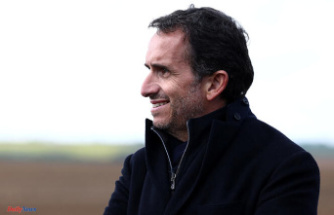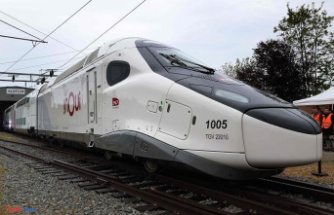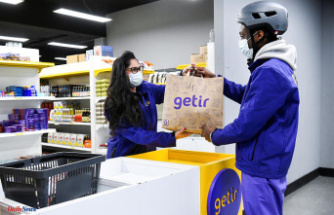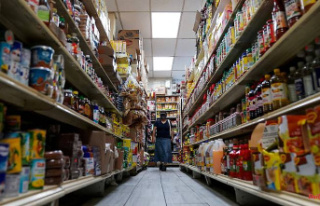Switzerland has decided on a location for its nuclear waste repository - the search is continuing in Germany. Currently, 90 locations are still being considered. The decision should be made by 2031. But the date doesn't seem realistic.
It was clear from the start that it wouldn't be easy. But how difficult the task actually is can be guessed at by anyone who has ever attended an information event on the search for a nuclear waste repository in Germany. Many question marks and hardly understandable criteria. The name alone indicates a highly bureaucratic process: the site selection process. This process should be completed by 2031.
Then Germany should finally have found a repository for high-level radioactive waste. And should the three remaining nuclear power plants actually go offline as planned at the end of the year or shortly thereafter and no more fuel rods are used, 1,900 containers with 27,000 cubic meters of highly radioactive waste from the nuclear power era will remain. To illustrate: A single cubic meter is the space occupied by a cube that is exactly one meter long, wide and high.
A legacy that does not even inspire enthusiasm among nuclear power advocates. Not to mention the part of the population that will have the repository practically on their doorstep in the future. The current reaction to the announcement from Switzerland that it wants to build a nuclear waste repository not far from the German border shows how sensitive people are already. In Germany, they now want to examine this Swiss decision in detail. The Parliamentary State Secretary in the Federal Ministry for the Environment, Christian Kühn, speaks of a "burden for the affected communities".
It's hard to imagine that there won't be an outcry in Germany if something more concrete emerges that the repository is actually to be built near a specific municipality in a federal state. "No one likes having a nuclear waste storage facility in the immediate vicinity of their place of residence," writes the Ministry of the Environment on this sensitive issue. "If the decision is made about the location of a repository in Germany, we assume that the German community then affected will also feel a heavy burden."
That is why Germany, like Switzerland, opted for an "intensive, participatory, geological-scientific process" when searching for a repository. The process must be transparent for the population, this is the only way to create acceptance. And that it is not possible without them is also shown by a look at history: In the 1970s, the political decision-makers had determined the Gorleben mine in Lower Saxony as the repository site without the participation of the population - and thus triggered large protests.
The search process that was launched a few years ago had set everything back to zero and focused on the participation of the population. As a result, Gorleben was eliminated as a location. To the relief of many who protested at the time.
Since 2017, the Federal Agency for Disposal (BGE) has been tasked with organizing the search and taking the population with it. Since then, there have been many discussions - initially face-to-face, then due to the pandemic and, to the annoyance of some participants who complained about less participation, also online. The number of areas that can be used as repository sites has since shrunk to 90. This has been the status since 2020. A little over half of Germany's area is therefore geologically suitable for a nuclear repository. This autumn, the BGE wants to present a schedule for the next narrowing down of the locations. It is still unclear exactly when the 90 sub-areas will become ten siting regions - the next step.
The President of the Federal Office for the Safety of Nuclear Waste Management (BASE), Wolfram König, recently criticized that it was far too slow. The search had come to a standstill, he complained. The BGE rejects this accusation on request. The process is "continuously progressing". The BGE is working with "high priority in terms of time to further narrow down the geology".
The procedure, which also includes public discussion and the development of methods, costs time, which the BGE considers "well invested in terms of the success of the procedure". The schedule until 2031 was “always sporty”, but she also admits. The Ministry of the Environment says that it is currently being reviewed.
So could there be another postponement to a later year? BASE President König warns that the process should not be postponed any further. "The search process in Switzerland shows us how important it is to narrow down suitable location regions in Germany," he says. The faster this happens, the faster discussions with the population about the respective location are possible.












